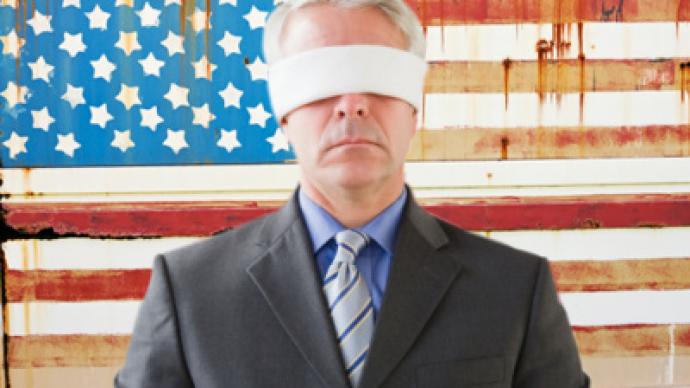Geographically-challenged US politicians mirror public

US politicians are not shy when it comes to offering opinions on foreign affairs, even when it is obvious they have not done their homework. Bloopers may be commonplace on Capitol Hill, but the American people have become the butt of the joke.
Advising other countries on democracy seems to be a must for any US politician, and some of them get so carried away that they confuse which countries exactly they are talking about. Commenting on democracy in Belarus, John McCain, for some reason, called it Lithuania.“I also want to thank the President of Lithuania, a group of our members of Congress visited with her yesterday, she is a great leader, but we also had an opportunity to meet with members of the opposition, many of whom have fellow countrymen residing in prison have been beaten and tortured… Pardon, Belarus,” John McCain said, not in the least bit embarrassed.During the same conference, the former presidential candidate and one of the most influential republican senators referred to Russia as the Soviet Union.“We all know that our missile defense and rather modest array is earmarked and we are proceeding with it because of the threat we face from Iran, not from the Soviet Union.”But senator McCain’s gaffes do not stop there.“I’m afraid that it is a very hard struggle, particularly given the situation on the Iraq-Pakistan border,” McCain blurted.Probably only in McCain’s mind did Pakistan share a border with Iraq.But he is not the only US politician who is quick to share their expertise in world affairs without checking some facts.George W. Bush, who now prides himself on having pushed democracy in Egypt, during his presidency thought Africa was a nation…
“Africa is a nation that suffers of incredible disease,”Bush said back then.The winner of hearts and minds of millions of Americans, Sarah Palin, too, thought Africa was a country some two years ago. But now nothing seems to stop her from handing advice on how to deal with Egypt. Mrs. Palin has further contributed to her credibility in foreign affairs when commenting on the US stance with regards to North Korea. “Obviously, we have got to stand with our North Korean allies; we’re bound to by treaties…” Palin got up to before being corrected.Denny Schechter, former CNN producer and media analyst, believes, “The paradox is that politicians who really know nothing about these things have to appear to know something, they have to speak out on all these issues to be considered credible figures. So Sarah Palin, who could see Russia from her door and her window, is now an expert on Russia or whatever else.”The reason US politicians feel free to make bloopers on international issues could be that many of their audiences cannot catch the inconsistencies. “It is very easy to manipulate people when they don’t know anything. On foreign policy generally Americans are indifferent. They don’t pay any attention to the world events and you can easily manipulate them. The costs of our public ignorance are ghastly,” says Rick Shenkman, associate history professor at George Mason University.After waging wars in Iraq and Afghanistan for years, figures show most Americans still have difficulties finding the countries on the map. If the public is not able to notice the ignorance of their politicians, than they will not be able to hold them accountable for their decisions. Some say that is one of the biggest threats to democracy in America.












